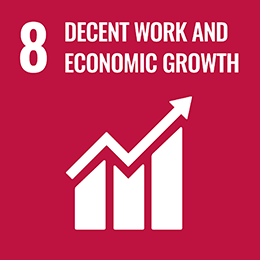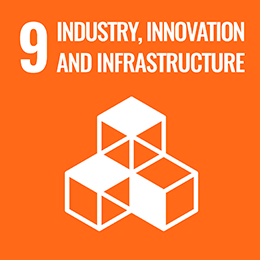No Entry

Share this article
Is globalisation dead?
“No matter what your profession – doctor, lawyer, architect, accountant – if you are an American, you better be good at the touchy-feely service stuff, because anything that can be digitized can be outsourced to either the smartest or the cheapest producer.” ― Thomas L. Friedman, author of The World Is Flat: A Brief History of the Twenty-first Century
On the Global Agenda at the World Economic Forum this year Paul Laudicina’s presentation Globalisation is dead: what now? left nothing to doubt.
Michael Goldfarb’s recent piece for the BBC Magazine US election 2016: The 40-year hurt, quoted Bruce Springsteen “Is a dream a lie if it don’t come true/or is it something worse?”, describing middle-American anger at the failure of the American dream; a resentment that has been building up over decades to culminate in the ‘unlikely’ rise of Donald Trump.
Although Trump did not create the economic anxiety, demographic resentment and fears for border security, his rhetoric mirrors and exploits it. The white working-class feel listened to for the first time in decades, and not just in the US. In countries where rising taxes and stagnating income is rife, the once well-off middle classes are in revolt.
Nigel Farage has blamed immigrants in the UK; although outwardly toned down, Marine Le Pen’s party in France is still anti-immigrant and xenophobic; and in Italy, Matteo Salvini, leader of the Lega Nord, who once said the euro was a crime against humanity, wants out of the EU. The French sneer at Brexit, forgetting that they have already said, “non” to further expansion of the EU (only to have the Maastricht treaty incorporated into French law by decree).
The borders are closing (and banks are in retreat), but what is behind all of this? First, there is the rise of technology-led (human-lite) production. Traditional working and middle classes can no longer aspire to a ‘better life’ as they are squeezed out by the rise of the robots.
Despite “nations and people beginning turning inwards”, Mark Zuckerberg’s view for the next decade involves technology “to give everyone the power to share anything with anyone”. He plans to create intelligent ‘chat bots’ to replace humans on customer service helplines, even if Microsoft’s Tay has tarnished the bots’ reputation for now with its demented racist, teenage rants mirroring the lowest-common-denominator world of Twitter.
Zuckerberg’s reference to nations turning inwards was related to Trump and his Mexico border plans, but protectionist policies such as these have been on the rise worldwide since 2008 as economies, and multinationals, tried to stem losses of what they believe to be ‘peak globalisation’. There were 539 harmful measurements implemented in 2015, 443 of which were by the G20, according to Global Trade Alert’s The Tide turns? Trade, Protectionism and Slowing Global Growth.
But protectionism is not the only force reversing globalisation. Capitalism may still be the dominant, international, societal structure but certain common assumptions are now in question, including the newly divisive topics of tax and regulation.
In financial services, US banks have all but given up serving wealth management clients in Europe (and Asia) and vice versa for European firms in America. The US has managed to fine the European and Swiss banks to a virtual standstill and Europe seems poised to counter attack by scrutinising the elaborate ‘transfer pricing’ practices of American technology and coffee companies.
Corporate tax revenues have been falling since the economic crisis, but the majority of all tax rises have fallen on individuals. To address this, the Organisation for Economic Co-Operation and Development is behind an ambitious project to close loopholes responsible for the avoidance of up to $240 billion of tax.
Adding to this list of ‘beggar thy neighbours’ policies, of regulation-as-trade-barriers and competitive currency devaluations, advances in production technology (and 3D printing in particular) is making where a product is ‘manufactured’ or ‘distributed’ (and therefore taxed) an increasingly hard-to-define problem.
Apple's gadgets, for example, come in beautifully packaged boxes: “designed in California” but made in China, Malaysia, Japan and elsewhere (according to Apple’s supplier list). Where, though, does their IP reside for tax purposes? The Obama Administration’s determination to stymie tax ‘inversion’ deals is another strong statement that governments will intervene in the normal functioning of capitalism to preserve their (self-selected) fair take of taxes.
Nevertheless, global growth will continue. PwC’s World in 2050 report Will the shift in global economic power continue? suggests the world will grow at an average of 3% per annum, doubling in size by 2037 and nearly tripling by 2050.
And the digital revolution will continue too. “Soaring flows of data and information now generate more economic value than global goods trade”, said McKinsey Global Institute in its report Digital Globalization: The New era of global flows that will change the landscape.
According to the McKinsey report digitisation of products and services and the growth of digital platforms will drive this growth. Over a decade, global flows have raised world GDP by at least 10%, this valued totalled $7.8 trillion in 2014 and data flows now account for a larger share of this impact than global trade goods, McKinsey said.
It is not hard to see how digitisation will change the global economy when 900 million people are connected globally on social media, and 50 million of those alone are on Facebook. According to McKinsey 86% of tech-based start-ups are ‘born global’ with 360 million people now taking part in cross border e-commerce.
Global connectedness seems to be replacing GDP as a measure of globalisation. DHL’s third edition of its Global Connectedness Index, an analysis of the state of globalisation around the world, shows that the 10 countries where global connectedness has increased the most from 2011 to 2014 are the emerging economies.
This suggests that the epicentre of future globalisation is also shifting. This echoes PwC’s report World in 2050 that suggests India has the potential to become the second largest economy in the world in Purchasing Power Parity terms, after China.
But until a new international agreement on corporate taxation is reached and the global middle classes find new ways to be economically relevant in this world of digital divergence, the political tide is likely to continue to see barriers to global commerce increase.
Globalisation ‘works’ for tax and accounting experts, for people with image rights to exploit and mayors of large cities who know that their sky scraper business centres needs high end and lower end workers (on different shifts, naturally).
For now globalisation seems to be leaving half of us behind, and tax-strapped governments too. In a still-largely-democratic world, that is a lot of naysayers. Globalisation might not be in retreat, maybe it has just paused for breath, at least that what the bond market seems to think.
Photo: © Niki Natarajan 2019
Artist: Clet Abraham
Article for information only. All content is created and published by CdR Capital SA. The views and opinions expressed in this article are those of the author(s). Information on this website is only directed at professional, institutional or qualified investors and is not suitable for retail investors. None of the material contained on this website is intended to constitute an offer to sell, or an invitation or solicitation of an offer to buy any product or service. Nothing in this website, or article, should be construed as investment, tax, legal or other advice.
Related articles
Democracy
The UK’s vote to exit the European Union and Donald Trump’s victory were signals of a worsening ‘democratic recession’. Today, only 4.5% of the world’s citizens live in fully functioning democracies, down from 8.9% in 2015. What are democracy’s flaws?

Truth, Extremes and Robots
Donald Trump understood one thing: the power of anger. During his campaign, Trump perfected, what Matt Frei, author of Only In America, calls ‘the art of bottling the anger and spraying it out when needed’. He unleashed the fury of working class America.

Populism Paradox
It doesn’t matter whether or not Trump wins on 8 November because the populism genie is out of the bottle. It is now clear that peak globalisation lies behind us.





